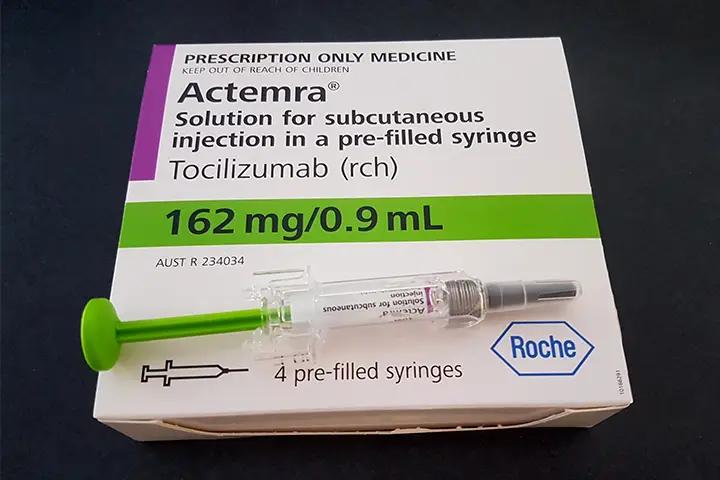- Bone Health
- Immunology
- Hematology
- Respiratory
- Dermatology
- Diabetes
- Gastroenterology
- Neurology
- Oncology
- Ophthalmology
- Rare Disease
- Rheumatology
FDA Approves First Tocilizumab Biosimilar
Tofidence, a tocilizumab biosimilar developed by Biogen, will be used to treat rheumatoid arthritis, polyarticular juvenile idiopathic arthritis, and systemic juvenile idiopathic arthritis.
The FDA has granted approval for Tofidence (tocilizumab-bavi), the first biosimilar in the United States to reference Actemra, according to an announcement from Biogen. The product will be used to treat several rheumatic conditions, including rheumatoid arthritis (RA), polyarticular juvenile idiopathic arthritis, and systemic juvenile idiopathic arthritis.
Tofidence references Actemra. Actemra is available to patients in prefilled syringes or autoinjector options, and it was approved by the FDA in 2010.

“The approval of Tofidence in the U.S. marks another positive step toward helping more people with chronic autoimmune conditions gain access to leading therapies,” said Ian Henshaw, global head of biosimilars at Biogen. “With the increasing numbers of approved biosimilars, we expect increased savings and sustainability for healthcare systems and an increase in physician choice and patient access to biologics.”
Tofidence was developed and will be manufacturered by Bio-Thera Solution and will be marketed by Biogen. As part of a commercialization and license agreement, Biogen has exclusive commercialization rights to Tofidence in all countries excluding China, which includes Hong Kong, Macau, and Taiwan. Biogen also is responsible for any regulatory filings in other countries.
The company said that it is still evaluating when to launch Tofidence in the United States. In July, the maker of Actemra, Roche, filed a lawsuit against Biogen, accusing the latter of infringing several of Roche’s patents regarding the development of Tofidence. Roche claimed that Biogen failed to provide detailed information during the biosimilar approval process that was necessary to determine whether the company infringed on Roche’s manufacturing patents. The result of this litigation will likely determine the date when Biogen will be allowed to launch Tofidence.
The approval comes about 10 months after the FDA agreed to review the application in December 2022. The FDA is also reviewing a biologics license application for Fresenius Kabi’s tocilizumab biosimilar candidate.
The biosimilar was approved in China in January 2023. Tocilizumab products are recombinant humanized monoclonal antibodies that target IL-6 receptors, which bind to soluble and membrane-bound IL-6 receptors and inhibit signaling.
In the United States, the reference product is approved for the treatment of RA, giant cell arthritis, systemic sclerosis–associated interstitial lung disease, polyarticular juvenile idiopathic arthritis, systemic juvenile idiopathic arthritis, cytokine release syndrome, and COVID-19.
According to Biogen, the FDA’s decision was based on data from preclinical and clinical trials that demonstrated the biosimilarity of Tofidence compared with its originator.
Newsletter
Where clinical, regulatory, and economic perspectives converge—sign up for Center for Biosimilars® emails to get expert insights on emerging treatment paradigms, biosimilar policy, and real-world outcomes that shape patient care.
